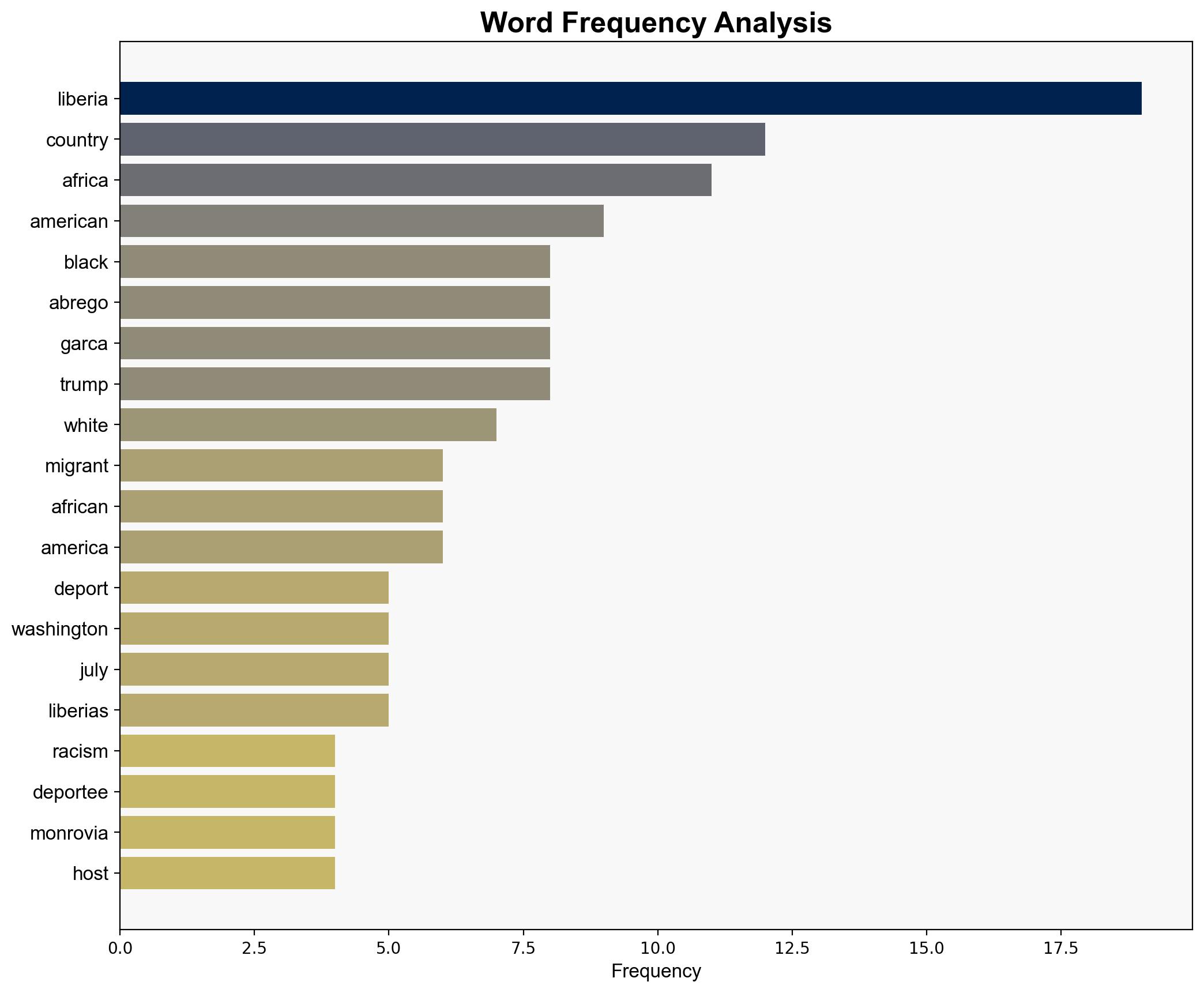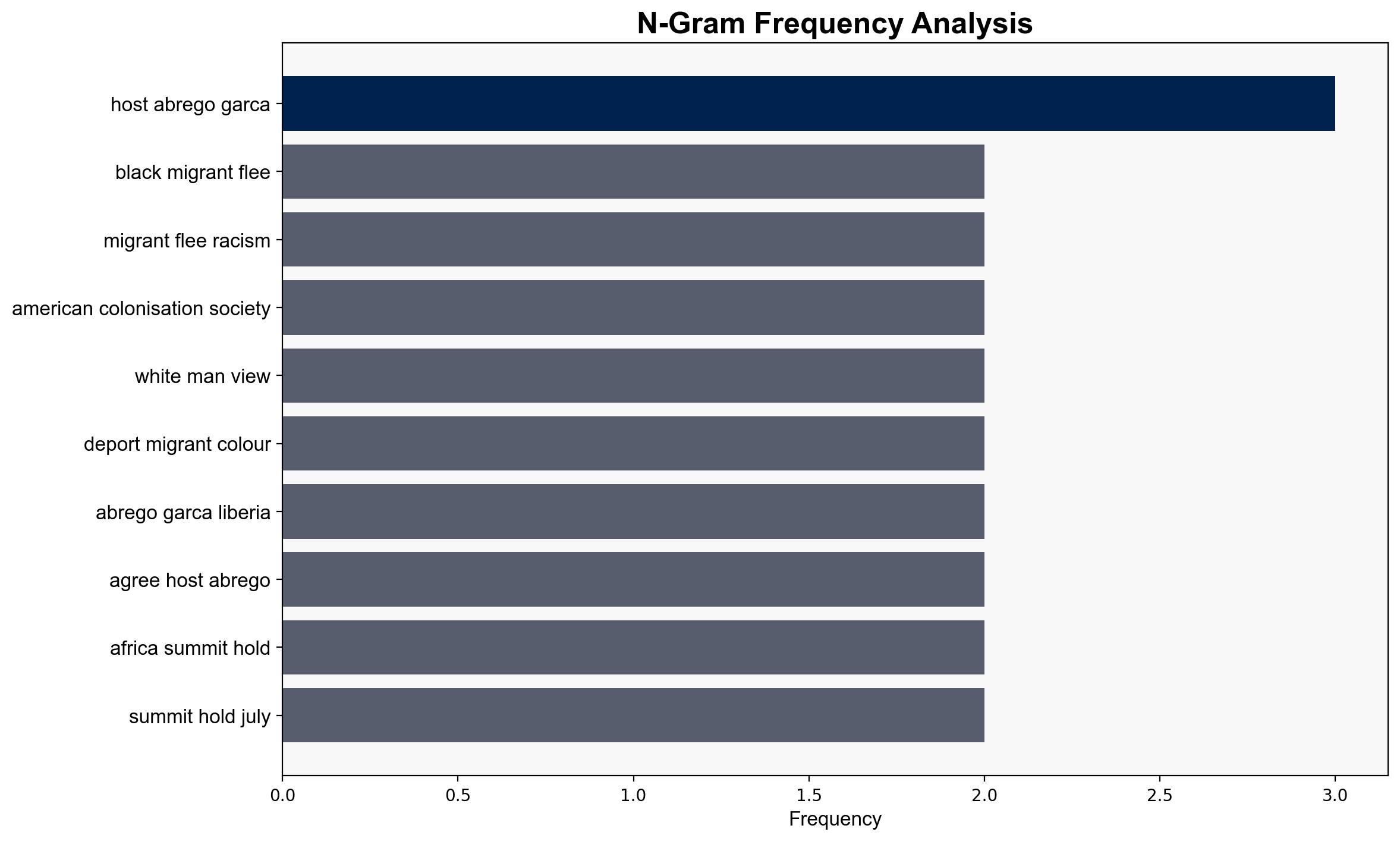Born to provide refuge from US racism Liberia must not help enforce it now – Al Jazeera English
Published on: 2025-11-07
Intelligence Report: Born to provide refuge from US racism Liberia must not help enforce it now – Al Jazeera English
1. BLUF (Bottom Line Up Front)
Liberia’s decision to host deportees from the United States, including Kilmar Armando Abrego García, raises strategic concerns about its historical role as a refuge for those fleeing racism. The most supported hypothesis suggests that Liberia’s cooperation with the U.S. may undermine its humanitarian credibility and historical legacy. Confidence level: Moderate. Recommended action: Liberia should reassess its position to align with its historical values and engage in diplomatic discussions to address humanitarian concerns.
2. Competing Hypotheses
1. **Hypothesis A**: Liberia’s decision to host deportees is primarily driven by diplomatic pressure and economic incentives from the United States, compromising its historical role as a sanctuary for those fleeing racism.
2. **Hypothesis B**: Liberia’s decision is a strategic move to strengthen bilateral relations with the U.S., potentially gaining economic and political benefits, while maintaining its humanitarian commitments.
Using ACH 2.0, Hypothesis A is better supported due to historical context and recent actions that suggest a compromise of humanitarian values for diplomatic gains.
3. Key Assumptions and Red Flags
– **Assumptions**: Hypothesis A assumes that Liberia’s historical legacy as a refuge is a significant factor in its current decision-making. Hypothesis B assumes that economic and political benefits outweigh historical and humanitarian considerations.
– **Red Flags**: The lack of transparent communication from Liberia regarding consultations with national and international stakeholders. Potential cognitive bias in assuming U.S. pressure is the primary driver without clear evidence.
4. Implications and Strategic Risks
– **Geopolitical Risks**: Liberia’s cooperation with U.S. deportation policies may strain relations with other African nations and international human rights organizations.
– **Humanitarian Risks**: Hosting deportees under perceived coercion could damage Liberia’s reputation as a historical sanctuary, leading to domestic and international backlash.
– **Economic Risks**: Short-term economic incentives may not compensate for long-term reputational damage and potential loss of international aid.
5. Recommendations and Outlook
- **Mitigation**: Liberia should engage in multilateral discussions to ensure decisions align with international human rights standards and its historical values.
- **Opportunities**: Strengthen regional alliances by positioning itself as a leader in humanitarian efforts.
- **Scenario Projections**:
– **Best Case**: Liberia renegotiates terms with the U.S., ensuring humanitarian standards are met and enhancing its international standing.
– **Worst Case**: Continued cooperation leads to significant reputational damage and loss of international support.
– **Most Likely**: Liberia faces moderate backlash but manages to maintain diplomatic relations with the U.S. while addressing some humanitarian concerns.
6. Key Individuals and Entities
– Kilmar Armando Abrego García
– American Colonization Society (historical context)
7. Thematic Tags
national security threats, geopolitical dynamics, humanitarian policy, U.S.-Africa relations





